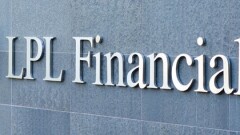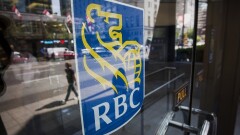Slumping stocks and bonds yielded much lower client satisfaction scores and skepticism about the degree that financial advisors are offering comprehensive advice, according to J.D. Power.
Investors who work with an advisor or a team of advisors gave their wealth management firms the worst grades in at least a decade as part of the research and consulting firm's annual "
For financial advisors, the generally ugly grades offer the latest signal that tumbling stock values amid inflation and concerns about a recession can often reverberate across their client base. While "many advisors have struggled with lower client satisfaction based on market performance over the past 16 months," the ones seeing the greatest impact tend to be those emphasizing "investment management and their ability to beat the market for their clients," said Kelly Klingaman, the founder of Austin, Texas-based
"Investing is key to wealth creation, and expert guidance and management can lead to better long-term outcomes," she said in an email. "Clients need constant education and reassurance about how the stock market works, and they should understand that any money that gets invested has a mid-term or long-term purpose; money they need in the short term is kept in high-yield savings accounts."
Many wealth clients may not be receiving that education, if J.D. Power's results are any indication.
Only 11% of the customers said their advisors are providing "comprehensive advice," with 47% classifying the service as simply being "goals-based," and 42% describing it as "transactional."
Worse, 57% told pollsters they have financial plans, but just 56% out of that group said they're getting comprehensive advice.
Even more disturbing for planning practitioners striving to boost the level of service and professionalism, 32% of the group with plans do not think their advisor makes recommendations in their best interest. And 29% of them told J.D. Power that their advisor doesn't understand their financial goals and needs.
"Advisor satisfaction continues to track overall market performance, and this points to a systemic problem in our industry: advisor value propositions grounded in investment performance," Tom Rieman, the head of wealth solutions at J.D. Power, said in a statement. "Advisors cannot control the ebbs and flows of the market, but the good ones help their clients plan for their best futures and deliver value in the form of comprehensive advice that should shine through in all market conditions."
Removing the correlation between customer satisfaction and stock performance "begins with advisor training," said Angie Herbers, the managing partner of consulting firm
"Without a coordinated training program to ensure service remains comprehensive, scaling advisor capacity is a dangerous road to travel," Herbers said. "To overcome the cycle, firms must invest more resources in professional advisor training; specifically, how advisors effectively communicate the benefits of financial discipline as a wealth accelerator."
To see which full-service investment firms fared the best in J.D. Power's annual survey, scroll down the slideshow. For results from prior years, see our slideshows from
Note: Only firms with at least 100 customers in the poll received individual customer satisfaction grades on a 1,000-point scale based on the following seven factors, which were weighted in this order: "trust; people; products and services; value for fees; ability to manage wealth how and when I want; problem resolution; and digital channels."
Between October 2022 and January 2023, J.D. Power spoke with 6,168 investors who said they work with an advisor or team of advisors in a phone survey.



























